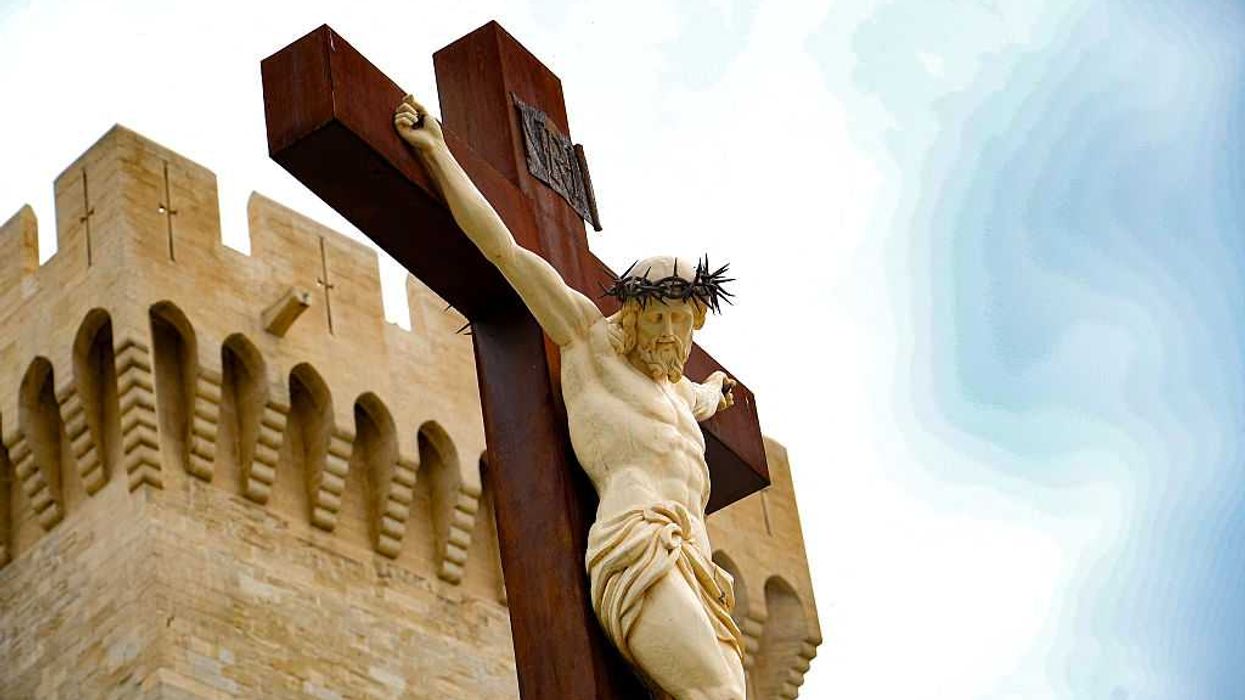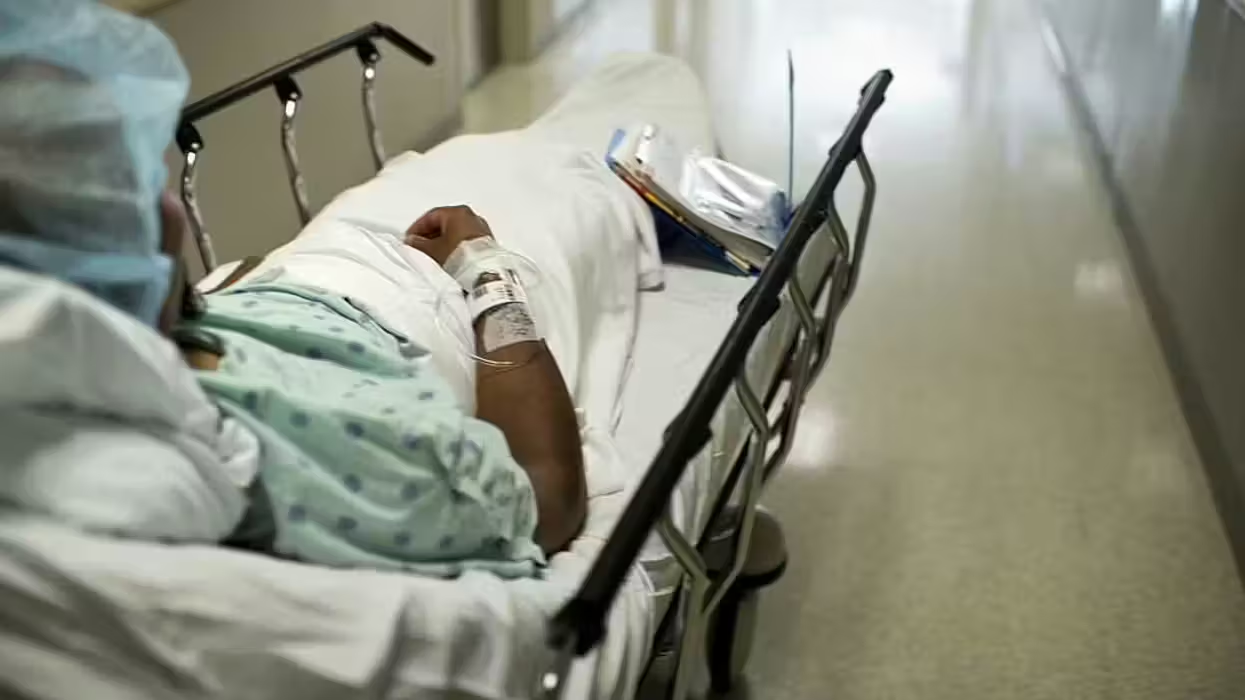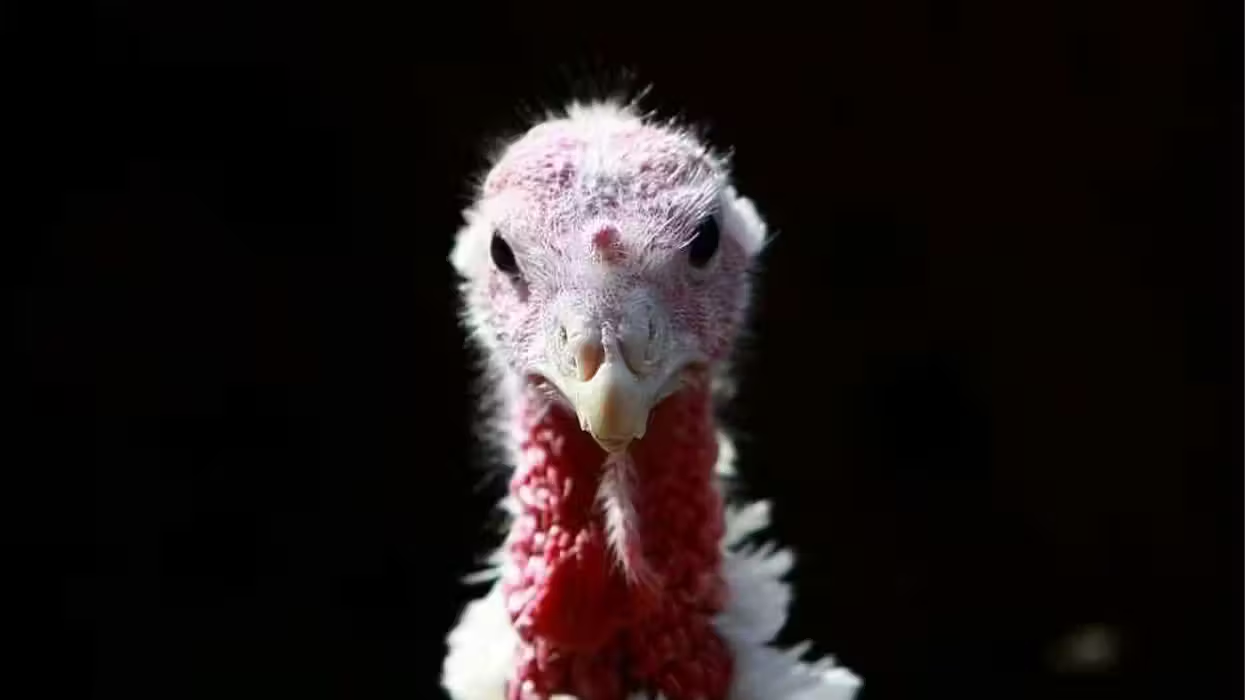
© 2025 Blaze Media LLC. All rights reserved.
Navy Diver Wouldn't Leave Trapped Comrade Behind Even as Equipment Failed. Report Shows Just How Selfless Their Final Actions Were.
August 04, 2014
“Both divers resisted the natural instincts of self-preservation."
Just how far the commitment of two Navy divers went in an effort to save each other's lives was not known until now.
The story of Petty Officer 2nd Class Ryan Harris and Petty Officer 1st Class James Reyher goes back to February 2013 when both would end up losing their lives.
The dive on Feb. 26, 2013, took place at Aberdeen Proving Ground in Maryland. According to earlier reports, the water was deep, cold and had low visibility. But the Virginian-Pilot reported that equipment failure was the most likely factor that led to their deaths after Reyher became trapped and Harris wouldn't leave him.
 Sailors pay their respects during a memorial service at Joint Expiditionary Base Little Creek-Fort Story for Navy Diver 1st Class James Reyher and Navy Diver 2nd Class Ryan Harris, from MDSU-2, who died Feb. 26. MDSU-2 is an expeditionary mobile diving unit homeported at Joint Expeditionary Base Little Creek-Ft Story in Virginia Beach Va. and has successfully conducted salvage operations to support TWA Flight 800, Swiss Air Flight 111, the space shuttles Challenger and Colombia and the Civil War ironclad USS Monitor. (Photo and caption credit: U.S. Navy/Mass Communication Specialist 2rd Class Steven C. Hoskins)
Sailors pay their respects during a memorial service at Joint Expiditionary Base Little Creek-Fort Story for Navy Diver 1st Class James Reyher and Navy Diver 2nd Class Ryan Harris, from MDSU-2, who died Feb. 26. MDSU-2 is an expeditionary mobile diving unit homeported at Joint Expeditionary Base Little Creek-Ft Story in Virginia Beach Va. and has successfully conducted salvage operations to support TWA Flight 800, Swiss Air Flight 111, the space shuttles Challenger and Colombia and the Civil War ironclad USS Monitor. (Photo and caption credit: U.S. Navy/Mass Communication Specialist 2rd Class Steven C. Hoskins)
Earlier this year, others involved in the fateful dive were brought to court in an emotional hearing that ultimately found the master diver, Senior Chief Petty Officer James Burger, guilty of negligent dereliction of duty. The commanding officer of the unit was fired just a couple of months after the men's deaths.
The Virginian-Pilot obtained more information from the official investigation of the case last week through the Freedom of Information Act and found, among the mistakes, were heroic actions that are now leading the military to award Harris, posthumously, with the Navy and Marine Corps Medal.
“Harris exhausted himself in an attempt to save Reyher,” the investigator wrote in the report, according to the newspaper. “Both divers resisted the natural instincts of self-preservation, in order to expel his last breaths in an effort to save each other.”
Reyher and Harris were part of a team that was training and had to dive 150 feet to a sunken helicopter as part of a mock mission. The Virginia-Pilot reported that one team had already aborted its mission, but Reyher and Harris eventually made it to the helicopter below. Here's what happened next:
The men were going through their air faster than the calculations had estimated. Moments after they reached bottom, a signal from sailors on the surface indicated it was time to start their ascent.That’s probably when Harris and Reyher realized they had problems, the investigator concluded. Reyher’s breathing apparatus had started leaking air, causing it to freeze, so he switched over to his backup regulator, hoping to stem the leak.
Meanwhile, he’d somehow gotten tangled at the bottom of the pond.
Harris tried to help. He wrapped some of the line connecting him to Reyher around his arm, straining to try and pull his buddy free. Soon their air was running low.
The crew above tried to save the men, knowing they were in some sort of distress, attempting to send other drivers down without success and even pulling on the line when other efforts weren't helping. But the line was stuck, according to the newspaper.
There were a couple of other things Reyher and Harris, or Harris himself, could have done to try to save their lives — such as using knifes to cut the line or inflating their vests — but the newspaper reported that they didn't try this.
Both Harris and Reyher's obituaries already acknowledged their heroic actions before death.
(H/T: Washington Post)
—
Front page image via Army.mil.
Want to leave a tip?
We answer to you. Help keep our content free of advertisers and big tech censorship by leaving a tip today.
Want to join the conversation?
Already a subscriber?
more stories
Sign up for the Blaze newsletter
By signing up, you agree to our Privacy Policy and Terms of Use, and agree to receive content that may sometimes include advertisements. You may opt out at any time.
Related Content
© 2025 Blaze Media LLC. All rights reserved.
Get the stories that matter most delivered directly to your inbox.
By signing up, you agree to our Privacy Policy and Terms of Use, and agree to receive content that may sometimes include advertisements. You may opt out at any time.





